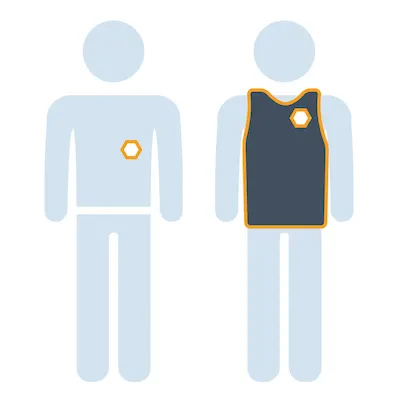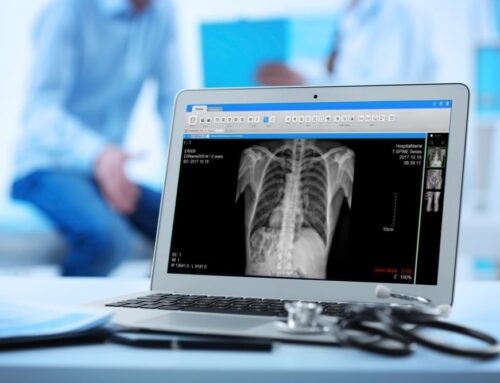Wearing a dosimeter is an important safety measure in many professions, particularly those that involve exposure to ionizing radiation. A dosimeter is a device that measures the amount of radiation to which a person has been exposed over a period of time. It is an essential tool for monitoring radiation exposure and ensuring that exposure levels are kept within safe limits.
Dosimeters are used in a wide range of industries and professions, including healthcare, nuclear power, radiology, and industrial manufacturing.
In these industries, workers may be exposed to ionizing radiation from various sources, including X-ray machines, nuclear reactors, and radioactive materials. Exposure to high levels of ionizing radiation can have serious health consequences, including an increased risk of cancer and other diseases.
Wearing a dosimeter allows workers to monitor their radiation exposure and take appropriate measures to limit their exposure if necessary. Dosimeters come in several different types, including film badges, thermoluminescent dosimeters (TLDs), and electronic personal dosimeters (EPDs). Each type of dosimeter has its own advantages and disadvantages, and the choice of dosimeter will depend on the specific needs of the industry or profession.
Film badges are one of the oldest and most widely used types of dosimeter.
They consist of a piece of photographic film that is enclosed in a plastic holder and worn on the body. The film is sensitive to ionizing radiation and will darken when exposed to radiation. The film can be processed in a lab to determine the amount of radiation to which the worker has been exposed.
TLDs are another type of dosimeter that are commonly used in healthcare and other industries. They consist of a small crystal that is sensitive to ionizing radiation. When exposed to radiation, the crystal will emit light, which can be measured to determine the amount of radiation to which the worker has been exposed.
EPDs are the newest type of dosimeter and are rapidly gaining popularity in many industries. They are small, portable devices that can be worn on the body and provide real-time monitoring of radiation exposure. EPDs are particularly useful in industries where workers are exposed to varying levels of radiation throughout the day.
In conclusion, wearing a dosimeter is an important safety measure for workers in industries that involve exposure to ionizing radiation. Dosimeters allow workers to monitor their radiation exposure and take appropriate measures to limit their exposure if necessary. By wearing a dosimeter, workers can ensure that they are working safely and within safe levels of radiation exposure.
What is a dosimeter?
A dosimeter is a device that measures the amount of ionizing radiation to which a person has been exposed over a period of time. It is an essential tool for monitoring radiation exposure and ensuring that exposure levels are kept within safe limits.
Who needs to wear a dosimeter?
Workers in industries that involve exposure to ionizing radiation should wear a dosimeter. This includes healthcare workers, nuclear power plant workers, radiology technicians, and industrial workers who handle radioactive materials.

